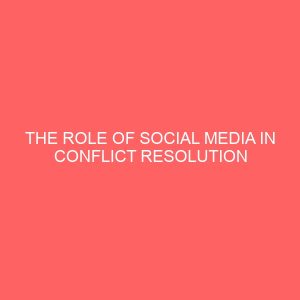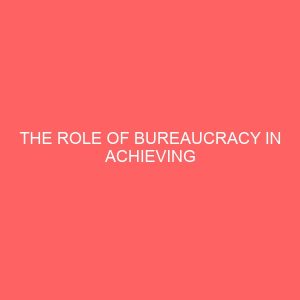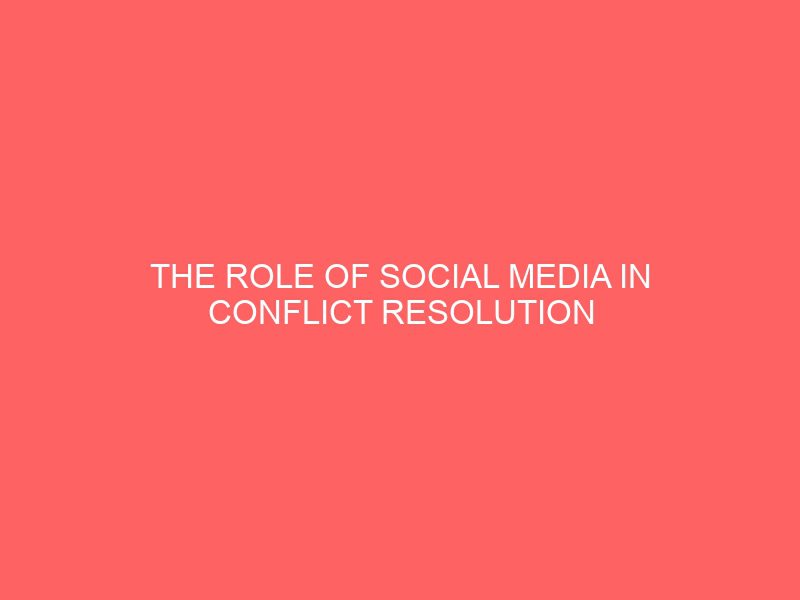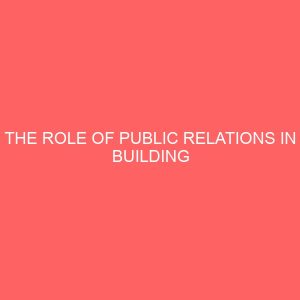Description
THE ROLE OF SOCIAL MEDIA IN CONFLICT RESOLUTION
CHAPTER ONE
INTRODUCTION
1.1 BACKGROUND OF STUDY
This research is on the role of social media in conflict resolution. Since time immemorial, people have had within themselves a very strong urge for communication and willingness to express themselves to others. In order to gratify this, need people and companies have gone great lengths to develop the “Media Industry”. However there has been a predominance of what is alluded to as mainstream media, which incorporate electronic media like television and radio, print media like Newspapers, Magazines etc. More recently there has been the emergence of the new media which includes the social media, which has complemented mainstream media in imparting information to the masses and the mostly used platforms include; Facebook, Twitter, WhatsApp, Hangout, Telegram, Skype, Yahoo chat and Blogs (Sayantani, 2016).
A vast majority of those on social media are the youths, majority of which spend quality time chatting and whirling away time. These platforms are usually user friendly to the extent that recent upgrades to them have constantly made them more user friendly even to the extent where illiterates with just basic knowledge of the icons on the platforms can now easily catch up and understand where they can press to chat with individuals and a group of people. (Sayantani, 2016).
In Nigeria there has been an increased access to the internet which is the fundamental tool to access social networks. Social media is basically very important and has a great potential for exchanging views such as on democratic dialogue, conflict prevention and peace building. Individuals can also advertise themselves forming friendship chain. Most people have associated the social media with positive outcomes which is not always the case. (Fineface, 2016).
1.2 Statement of the problem
In the light of conflicts and violence in the society, most users now have the greatest means to express and share information, since everybody has the possibility to become a content creator. Nevertheless, not everybody is morally and ethically guided while utilizing it, and in this manner the social media can be misused by such people. The other noteworthy concern is the trouble of ensuring reliability and accountability of facts and information disseminated through internet, unverified facts are usually circulated with proposed actions. The social media users regularly do not offer consideration regarding the precision of the information contextualization or authentication of such information. Vague or ambiguous information can have grave results on emergence of violence. As a new platform for communication, the social media acts in unpredictable ways and without regulations, ethical standards or professionalism and as such any individual can post anything online.
In truth, controlling the internet is more troublesome than the traditional media (Radio, Television and Newspapers), and as such the rise of social media has dared to de-formalize communication, which involves a consistent and quick communication approach now for users, which interface in and around as well as locally. Media can thus assume an imperative part of a watch dog of the general public, by exposing to the masses what is essential but hidden; however, it can also be used to mobilize violence through the spread of fake news and also it has the power to reduce violence especially when true facts are encouraged, promoted and users of such platforms take out time to verify information’s and broadcast to counter the already circulating one that has a tendency to cause violence.
1.3 Aim and Objectives of the study
The aim of this study is to look into understanding the role social media plays in conflict Resolution in the society.
The specific objectives of this study are as follows;
- To examine ways in which social media can be used to prevent violence from escalating or starting in the first place.
- To examine if there are ways messages that can promote violence can be stopped from circulating on social media.
- To ascertain the extent to which the government and the general public have continually encouraged the Stop of fake news publications.
1.4 Research Questions
The research questions key to this study are as follows;
- Can people’s attitude negatively influence social media?
- Can social media be used to shape the society?
- Can social media be used to resolve conflicts?
- Is there a relationship between the cause of modern-day conflict and social media?
- Can individual efforts like verifying news/posts help reduce conflict?
- Are there laws that counters fake news on social media in Nigeria?
- Are social media news/posts more credible than Newspapers, radio and Television news?
- Can social media be used as an effective tool in settling conflicts?
1.5 Research Hypothesis
From the above-mentioned research questions, some hypotheses shall be tested in this study. They are as follows:
H0: Social media cannot be used to settle conflicts.
H1: Social media can be used to settle conflicts.
H0: Social media cannot be used to instigate conflicts.
H1: Social media can be used to instigate conflicts.
1.6 Significance of the study
Social media as a tool for disseminating information has come to stay, in as much as it may be rightly used or not, and this has brought about the need to carefully assess ways to use social media to resolve conflicts effectively. The process of ensuring that facts are spread and not fake news that can lead to conflict, is key to this study and also the fact that users of social media platforms can rise to debunk fake reports that can lead to disunity is the focus of this research, so as to have a better society with free flow of information to strengthen unity in diversity.
1.7 Scope of study
The scope of this study is on Kaduna state which is amongst the states in Nigeria recently ravaged by different spates of violence that has led to the loss of lives and properties.
1.8 Basic Assumptions of the Study
Based on available literature on the role of social media in conflict resolution, this study was based on the following assumptions that:
- Social media can be used to influence conflicts.
- Social media can be used as a tool to resolve conflicts.
- Social media can be used to reduce the spread of fake news which causes violence in the society.
- Social media can be used to spread and promote peaceful co-existence amongst people.
1.9 Limitation of study
The research findings for this study is limited to the role of social media in conflict resolution in Kaduna state, Nigeria.
During the study, there were specific hinderances to the study, which are as follows;
- Insufficient materials on the role of social media in conflict resolution.
- Unwillingness by some respondents to fill the research questionnaires. This was due to their busy schedules, ignorance of the study and general negative perception of respondents. The researcher overcame this challenge by creating a good rapport with the respondents to promote trust and reaffirmed confidentiality and anonymity where requested.
1.10 Definition of Terms according to Oxford Learners Dictionary;
Conflict: A serious disagreement or argument, typically a protracted one.
Resolution: The action of solving a problem or contentious matter.
Social Media: Websites and applications that enable users to create and share content or to participate in social networking.
Fake: A thing that is not genuine; a forgery or sham.
News: Newly received or noteworthy information, especially about recent events.








Reviews
There are no reviews yet.